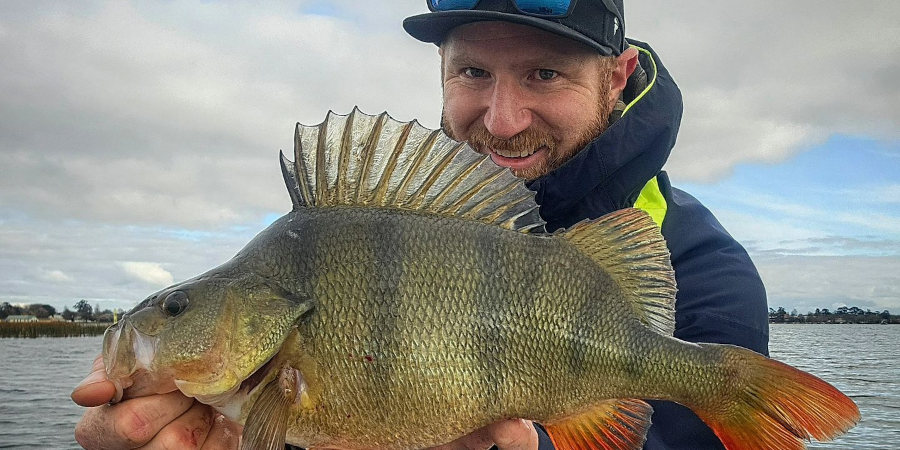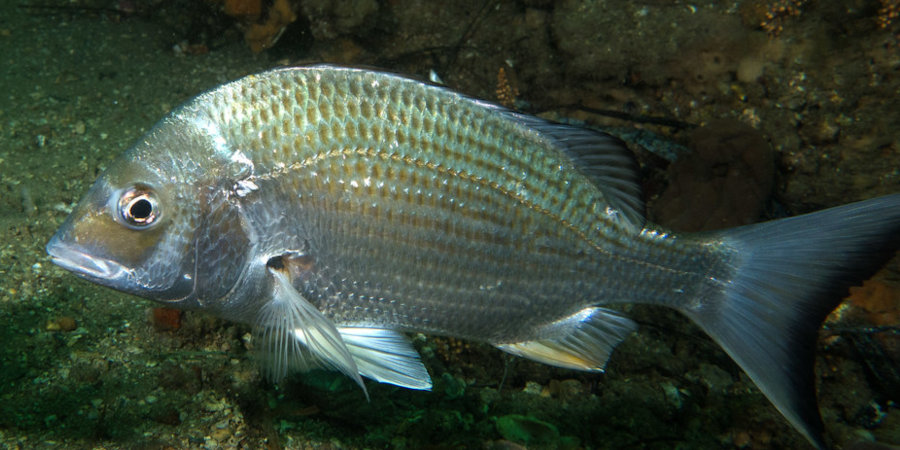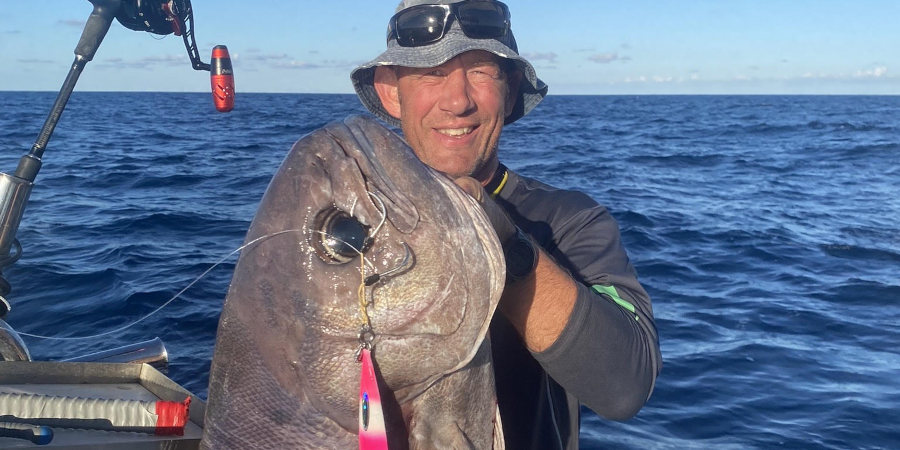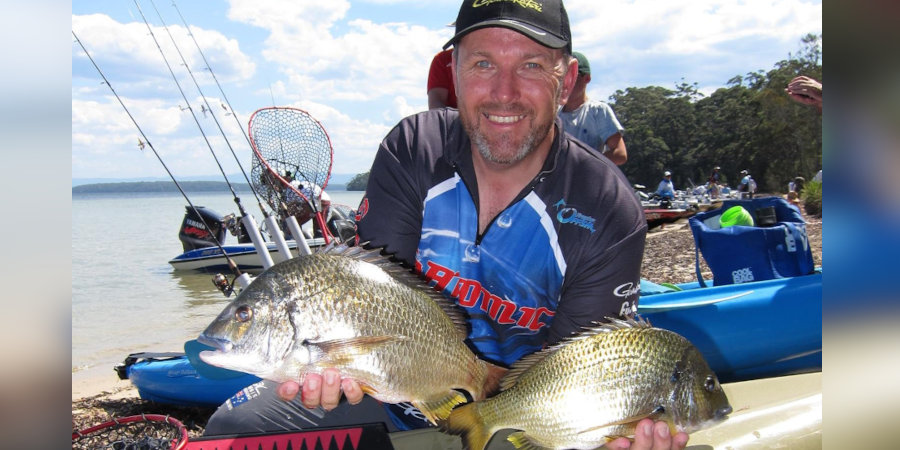
Greg "Doc Lures" Vinall
Podcast Host, Lure Maker, Scientist, Educator
Why Eyesight Isn’t Too Important To Fish (Mostly)
- Human beings are such visual animals, most of us rely on eyesight as our primary sense. In fact, we’re so reliant on eyesight that when we need to get more out of our hearing, sense of smell, sense of taste or touch we usually close our eyes.
- Many animals rely more heavily on their other senses and less so on sight. Dogs and pigs can find food they can’t see using their sense of smell. Many animals have extremely sensitive hearing and can pick up predators or prey from their sound. But for whatever reason, anglers often assume (usually incorrectly) that fish are largely visual predators.
- It’s true that fish do use vision to find, identify and hunt down prey or food. But it’s also true that very often the fish’s environment is not conducive to visual hunting. Any colour or cloudiness in the water, low light conditions, turbulence and the like can reduce visibility for long periods of time. And then when you closely examine the eyes of a fish you start to understand that they have often evolved to have limited vision.
- When you take all of the above into account you realise that if eyesight was the primary sense that fish used for hunting…… a lot of them would starve!
What Senses Are Important To Fish?
So what are the sense and adaptations that fish use to find food?
Vortices
These are small, invisible trails of turbulence left behind when a baitfish or lure moves through water. They’re kind of like a scent trail and to fish they are a dead give-away that something has swum through the area recently. And like a scent trail, fish can vortices to the source, using them to track down baitfish without the need to see anything.
Vibration
It’s a fine line between vortices, vibration and sound. Most people are aware these days that many fish have a lateral line that senses vibration, water movement and changes of pressure. It’s extremely sensitive and fish can often tell the size and direction of movement of a prey item from the vibration it emits. That’s a good reason to try and match the frequency and amplitude of your lures action to the frequency and amplitude of the bait you are imitating.
Sound
Fish have ears, they just don’t have fleshy external appendages like other animals. Don’t be fooled though, their underwater hearing is much more effective than ours – and they can tell the direction of an underwater sound, which we humans can’t. Fish often hear a lure long before they see it, even in very clear water, so you’d better be sure that the sound it makes creates a feeding response rather than a fleeing response.
Smell and Taste
Yep, I understand that these two are separate, distinct senses. But as with humans the two are closely related in fish. Obviously, for a fish to smell something, small particles need to find their way into the nostrils (called nares) and pass over the olefactory system. Things that don’t dissolve in water or aren’t suspended are difficult or impossible for fish to smell. So many non-soluble, floating chemicals like fuel, the active ingredients in sunscreen and insect repellent are probably quite difficult for fish to smell, contrary to popular belief. They do smell proteins extremely well though, plus bile acids that signal a recent feeding event. As far as taste goes, most of a fishes taste buds are on its face, fins, lateral line and so on, very few are actually in the mouth. So fish are constantly tasting the water around them and anything that they swim close to.
Electroreception
There are two possible way in which fish can use electric fields. One is to create a field that can detect when something is nearby, kind of like the fish version of sonar. A more common one is to detect the minute electric impulses that occur in the muscles of a fleeting baitfish. There’s plenty of evidence that multiple species use this approach to locate food items that are in very close proximity, but the jury is out on whether the small electronic chips some anglers add to lures have any real benefits.
Soft Plastic Lure Fishing Hacks 101 With Greg Vinall
EPISODE # Check out our archives for more information on Botany Bay Fishing Spots!Fishing with soft plastic lures can be incredibly rewarding if you know how to use them effectively. With over 25 years of experience, I've picked up a range of tips and tricks that can...

Advanced Soft Plastic Techniques With Rory Benn-Clibborn
This interview with Rory Benn-Clibborn is EPISODE 679. Check out our archives for more information on Lure Fishing In Australia!In this masterclass, I chat with Rory Benn-Clibborn from Perch Palm Lures about various advanced techniques for fishing with soft plastic...

The Art Of Luring Bream
Tim “The Bream” Morgan is highly respected for his achievements on the tournament bream circuit, so when he gets chatting to fellow bream gun Andrew Death, you’d better believe that the pro tips will start flowing!

Episode 626: Advances in Deep Slow Pitch Jigging with Jim Potts
Deep drop slow pitch jigging is one of those areas where anglers are always pushing the limits of their gear and the available techniques. Jim Potts is at the forefront of the deep slow pitch revolution and shares his learnings as he modifies and develops tackle to meet his specific fishing needs.

Episode 620: Maximise Your Fishing With Andrew Death
Tournament anglers approach their fishing a little differently than most social anglers. So what can we learn that might help us maximise our enjoyment and results when we’re not fishing competitively?
Soft Plastic Lure Fishing Hacks 101 With Greg Vinall
EPISODE # Check out our archives for more information on Botany Bay Fishing Spots!Fishing with soft plastic lures can be incredibly rewarding if you know how to use them effectively. With over 25 years of experience, I've picked up a range of tips and tricks that can...

Advanced Soft Plastic Techniques With Rory Benn-Clibborn
This interview with Rory Benn-Clibborn is EPISODE 679. Check out our archives for more information on Lure Fishing In Australia!In this masterclass, I chat with Rory Benn-Clibborn from Perch Palm Lures about various advanced techniques for fishing with soft plastic...


0 Comments